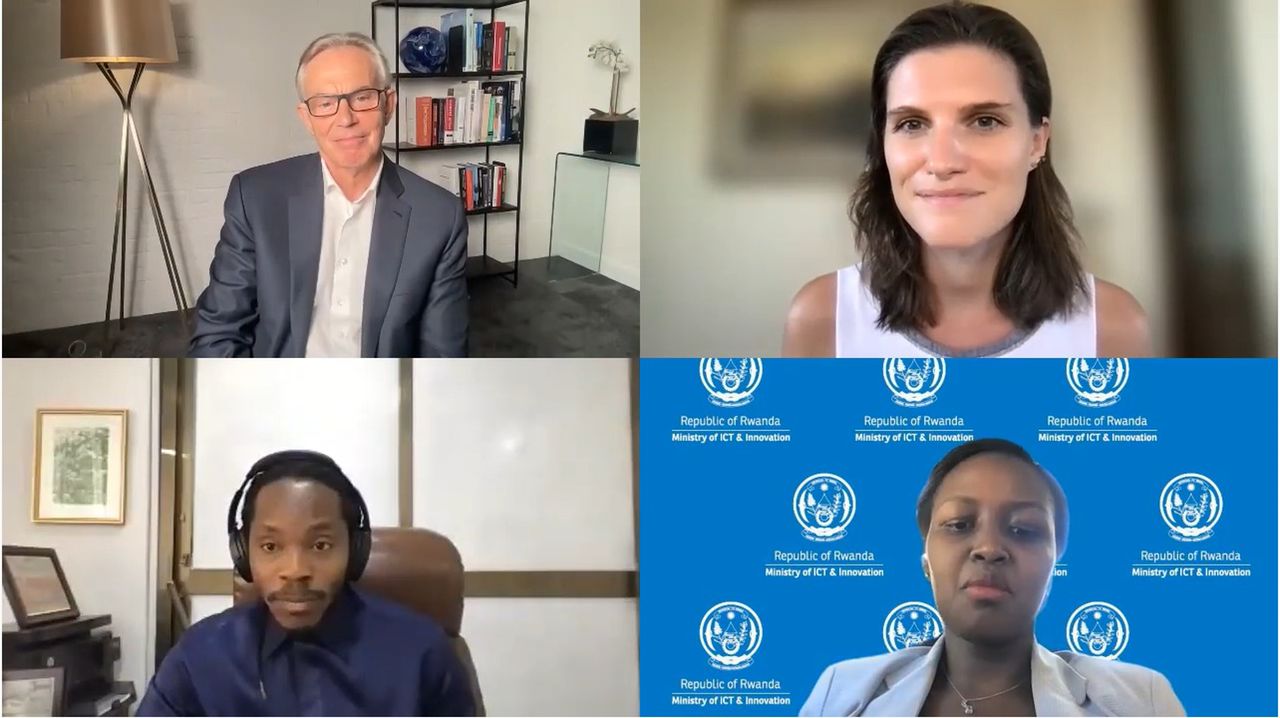Sierra Leone, Rwanda can be strong cases where technology is used to improve learning -Former British Prime Minister
Prime Minister of Great Britain and Northern Ireland from 1997 to 2007, Sir Tony Blair has stated that Sierra Leone and Rwanda are strong examples for countries to emulate how technology can be used to get learning back on track.
In a webinar with Minister of Basic and Senior Secondary Education and Chief Innovation Officer, Dr David Moinina Sengeh, and Minister of Information and Communications Technology and Innovation in Rwanda, madam Paula Ingabire, moderated the founder and chief operations officer ada learning, madam Léa Steinacker as moderator, the former British Prime Minister stated:
“We have got – if you don’t mind me saying – two of the most able ministers on the African continent here with us … Both of them are people who understand the technology and understand how they might utilize it. It’s important to say that a lot of governments … don’t understand and frankly, they are deeply suspicious of technology… The World Education Service will build up real practical examples” of how technology can accelerate the process of change in education he said.
He made this statement on Thursday, 28 July 2022 during a webinar on how technology has the potential to supercharge global education efforts.
“One thing I have noticed … is that the Presidents and Prime Ministers we are working with are much more attuned to what technology can do. So I have a quite different quality of conversation around things like data, and data infrastructure and data centres than I did four or five years ago … the best thing to do … is by example. By saying, look, this is what Sierra Leone or Rwanda are doing, this is how they have done it, and you can do it too, it is not that complicated,” he said.
The Former British Prime Minister said education is the great liberator, noting that without access to education there is no access to opportunity. Explaining how technology can bridge the gap in learning, he said technology helps support education with access, quality and at a cheaper cost.
According to Dr Sengeh, there are three concrete steps that should be taken in order for technology to be used to improve learning outcomes and they are; 1) think open source, create together and share 2) think radical inclusion and build equity, noting that technology must drive equity and should not be seen as something that further creates a gap, 3) and finally, the world should think hybrid to ensure that all learners get access to quality education. Finally, he stated, “Let’s accelerate toward SDG-4 and let’s transform education.”
Minister Sengeh highlighted the gains Sierra Leone has made in using technology to improve access to education, ensure quality and reduce the cost of education. He specifically talked about the result checker, the placement checker, the digital dictionary, the learning passport and the education radio that offer free distance teaching to many households.
Sir Tony Blair serves as Executive Chairman of the Tony Blair Institute for Global Change. He set up the Institute to support leaders and governments, and he draws on his deep experience from his time in government. He has mobilised the Institute’s 450+ staff in more than 20 countries across four continents to promote global coordination and help governments confront Covid-19 and respond to other critical challenges related to policy, delivery and leveraging technology.
The global education crisis is real and urgent. Today, over 258 million children and young people are out of school and one in seven 10-year-olds in low and middle-income countries struggle to read a simple text. Without radical action, we won’t even come close to achieving UN Sustainable Development Goal 4.


